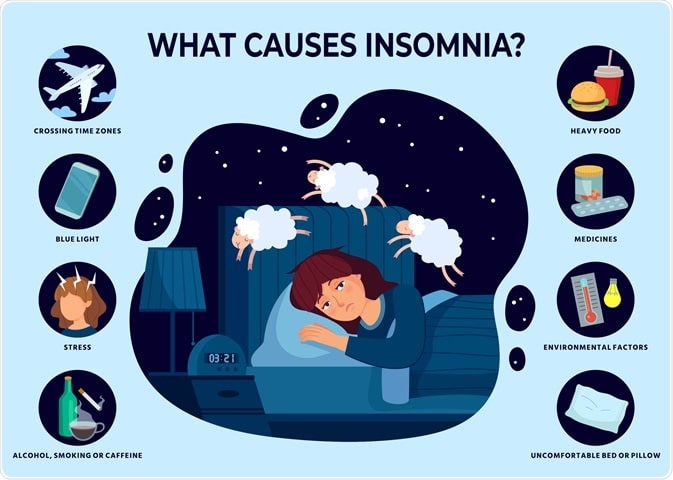
08 Jul Insomnia
Insomnia is defined as a ‘difficulty getting to sleep or staying asleep for long enough to feel refreshed the next morning’ and is very common in the UK, with one in three people suffering with the problem according to the NHS. The official definition is left quite vague as although the NHS suggest adults get between 7-9 hours sleep every night, every individual is different and has a preferred amount of sleep.
You may have insomnia if you regularly –
- Have trouble falling asleep
- Wake up during the night more than once
- Feel unrefreshed when you wake up
- Feel tired and irritable throughout the day
Of course, people may experience these symptoms for a few days here or there, but it’s when these start causing fatigue regularly and lead to an impact on your quality of life, when a doctor or further help should be consulted. Other ways you can try to tackle it yourself include setting regular times for going to bed and waking up, relaxing before bedtime, using ear plugs and eye masks, avoiding stimulants like caffeine after lunchtime, reducing technology like phones in the bedroom and not napping throughout the day. However, if these self-help tips don’t work, do consult your GP, who can help by signposting you to appropriate CBT and at last resort, sleeping medication.
Insomnia can be caused by a number of things, so be sure to discuss these with your healthcare professional if you are suffering. Stress, anxiety and other mental health conditions, a poor sleep environment, physical health conditions like sleep disorders and heart conditions and some medication can have an impact on your sleep patterns.


